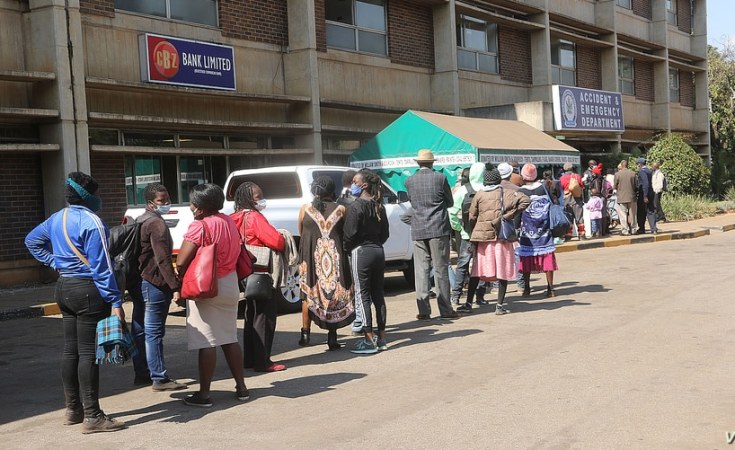The cost of living has reached crisis levels, with families now spending up to ten times more than they did almost 16 months ago, according to a recent report by ActionAid.
Zimbabwe, a country with an estimated 2.8 million unemployed individuals, has been particularly hard-hit, with some districts experiencing skyrocketing prices.
Petrol prices have risen by over 900 percent, food prices by up to 750 percent fertilizer costs by more than 700 percent, and period pads now cost more than 600 percent their previous price.
Joy Mabenge, ActionAid Zimbabwe Country Director highlighted that the increasing food and fuel prices in the country have been a daily struggle, particularly for families living below the poverty line.
"In certain areas, some households cannot even afford one meal a day because the food prices have spun completely out of control, leaving many battling to keep their heads above water. They are literally living one day at a time, not knowing where their next meal will come from," said Mabenge.
A survey conducted by ActionAid, which included over 1,000 community members and leaders from 14 countries in Africa, Asia, and the Caribbean, revealed that prices of essential items such as pasta and fertilizer rose by more than 115% during the monitored period.
The costs of petrol and period pads increased by 80% or more.
These price hikes have contributed to a surge in child marriage rates and worsened mental health. Despite the UN Food and Agriculture Organization Food Price Index indicating an 11.7% decline in global prices since February 2022, the survey participants reported substantial price increases.
Local community leaders in 10 out of 11 surveyed countries expressed concerns about the rising rates of child marriage in their areas. More than half of the respondents (54% and 53%, respectively) said they felt sad or hopeless due to the price rises, raising concerns about the emotional well-being of families affected by the crisis.
ActionAid is calling for a comprehensive approach and adequate funding to address the interconnected crises that exacerbate the price crisis, including climate change, debt stress, and conflicts.
Alberta Guerra, a Global Policy Analyst for ActionAid, stressed the urgent need for social protection measures, such as free education services and free school meals, to assist the families most at risk.
"In the longer term, governments dependent on food imports must also invest in national and regional food reserves to act as buffers and reduce countries' vulnerability to food shortages and price rises. The catastrophic impacts we are seeing make it clear why a just transition to renewable energy and agroecological farming practices is needed now more than ever, both to protect communities from shocks and also to offer resilience against the climate crisis. There is no time to waste," Guerra.
In May, the FAO Food Price Index averaged 124.3 points, marking a 2.6% decrease from April. However, the UN warns that acute food insecurity is projected to increase in magnitude and severity from June to November in 18 hunger "hotspots," comprising 22 countries.
ActionAid's survey findings align with previous research released by the organization in May 2022. The earlier research revealed that families in 13 countries globally were paying nearly four times more than before Russia invaded Ukraine, highlighting the alarming trend of rising living costs.


